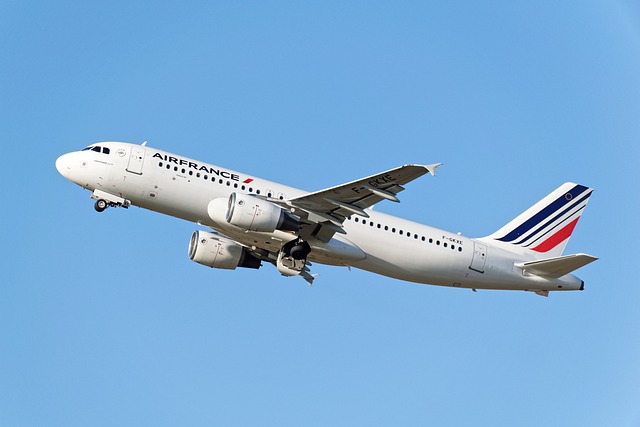France Through the Ages: A Journey of Culture and Innovation
France is a nation rich with history, culture, and innovation that has evolved significantly over the centuries. From the early Celtic tribes to the sophisticated society of the Enlightenment, through wars and revolutions, and into modern times, France has consistently been at the forefront of cultural and technological advancements. This article will explore the key epochs in French history, showcasing how each period has contributed to its vibrant identity.
The Ancient and Medieval Periods
The roots of French culture can be traced back to the ancient Celtic tribes, known as the Gauls, who inhabited the region around 500 BC. Their influence is still evident in contemporary France, particularly in language and place names. With the conquest of Julius Caesar in the 1st century BC, the area became part of the Roman Empire, leading to significant cultural and architectural developments. Roman cities flourished, and with them came innovations in governance, engineering, and public infrastructure.
After the fall of Rome in the 5th century, the region entered the Medieval period, marked by the rise of feudalism. This era gave birth to a unique chivalric culture, exemplified by courtly love, the tales of King Arthur, and troubadours who traveled the land, sharing songs and poetry. The construction of magnificent Gothic cathedrals such as Notre-Dame de Paris and Chartres Cathedral reflects the deep spirituality and artistic flourishes of the time, blending faith with extraordinary architectural innovation.
The Renaissance and Enlightenment
As the Middle Ages waned, the Renaissance began to emerge in France during the late 15th century. This cultural movement heralded a renewed interest in classical antiquity, art, science, and humanism. Prominent figures like François Rabelais and Michel de Montaigne challenged societal norms and promoted individual thoughts and expressions, paving the way for intellectual freedom.
In the realm of art, the period saw the likes of painters such as Leonardo da Vinci and Jean Clouet, who infused their works with naturalism and perspective techniques that had never before been seen. Architectural marvels like the Château de Chambord exemplified the merging of Renaissance ideals with French architectural styles.
The Enlightenment of the 18th century continued this cultural progression, marked by the emergence of philosophical thought that emphasized reason, liberty, and equality. Thinkers like Voltaire, Rousseau, and Diderot questioned established norms and inspired new ideas about democracy and individual rights. Their writings profoundly influenced the French Revolution and the modern world.
The French Revolution
The French Revolution (1789-1799) was a pivotal moment in both French and world history. Rooted in Enlightenment ideals, the revolution sought to overthrow the monarchy and establish a republic grounded in liberty, equality, and fraternity. The revolution ignited debates about governance, civil rights, and the role of the individual in society, laying the groundwork for modern democratic principles.
The cultural changes that followed were equally significant. The revolution spurred artistic movements like Romanticism and Realism, which focused on emotional experience and the depiction of everyday life. Artists such as Eugène Delacroix captured the fervor of the revolutionary spirit, while novelists like Victor Hugo and Honoré de Balzac explored the complexities of society in their works.
The Industrial Revolution and Modernism
As the 19th century unfolded, France experienced the Industrial Revolution, fundamentally altering its social and economic landscape. The proliferation of factories and urbanization brought about changes in lifestyle and work, fostering a sense of modernity. This period saw the growth of the bourgeoisie, who became influential patrons of the arts.
The Impressionist movement emerged during this time, with artists like Claude Monet and Edgar Degas challenging traditional artistic conventions. They sought to capture fleeting moments and the effects of light, reflecting a broader cultural shift toward modernity and individual perception.
As the century drew to a close, the avant-garde movements began to take shape, including Post-Impressionism and Symbolism, pushing boundaries in art, literature, and philosophy. In literature, writers such as Marcel Proust and F. Scott Fitzgerald debated the nature of time and self, deepening the exploration of the human experience.
The World Wars and Post-War Culture
The 20th century brought devastation in the form of two World Wars, profoundly impacting French society and culture. The struggle during these conflicts fostered a strong sense of national identity and resilience. After World War II, France underwent a period of reconstruction, leading to a flourishing of cultural expression in various forms, including literature, film, and philosophy.
The Existentialist movement, led by figures like Jean-Paul Sartre and Simone de Beauvoir, examined the absurdity of existence and championed individual freedom and responsibility. These philosophies permeated literature, influencing writers like Albert Camus and André Gide, and heralded a new way of thinking about humanity’s place in the world.
Modern France: Diversity and Innovation
In the contemporary era, France is emblematic of a multicultural society, drawing from a history of immigration. The influence of African, Asian, and Middle Eastern cultures has enriched the French identity, leading to a dynamic blend of traditions, cuisines, and artistic expressions.
The digital age has also seen France emerge as a leader in innovation. Paris has become a tech hub with initiatives like Station F, the world’s largest startup campus. This environment nurtures creativity and entrepreneurship, reinforcing France’s long-standing tradition of innovation.
Conclusion
Tracing the journey of France through the ages reveals a spectacular tapestry of cultural richness and innovation. From its ancient roots to the modern multicultural society it has become, France continues to wield profound influence across global art, literature, philosophy, and technology. Its history is not merely a chronicle of events but an ongoing narrative shaped by the artists, thinkers, and ordinary citizens who contribute to the vibrant identity that defines France today.
